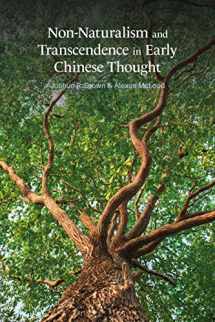
Transcendence and Non-Naturalism in Early Chinese Thought
Book details
Summary
Description
Contemporary scholars of Chinese philosophy often presuppose that early China possessed a naturalistic worldview, devoid of any non-natural concepts, such as transcendence. Challenging this presupposition head-on, Joshua R. Brown and Alexus McLeod argue that non-naturalism and transcendence have a robust and significant place in early Chinese thought.
This book reveals that non-naturalist positions can be found in early Chinese texts, in topics including conceptions of the divine, cosmogony, and apophatic philosophy. Moreover, by closely examining a range of early Chinese texts, and providing comparative readings of a number of Western texts and thinkers, the book offers a way of reading early Chinese Philosophy as consistent with the religious philosophy of the East and West, including the Abrahamic and the Brahmanistic religions.
Co-written by a philosopher and theologian, this book draws out unique insights into early Chinese thought, highlighting in particular new ways to consider a range of Chinese concepts, including tian, dao, li, and you/wu.


We would LOVE it if you could help us and other readers by reviewing the book
Book review



